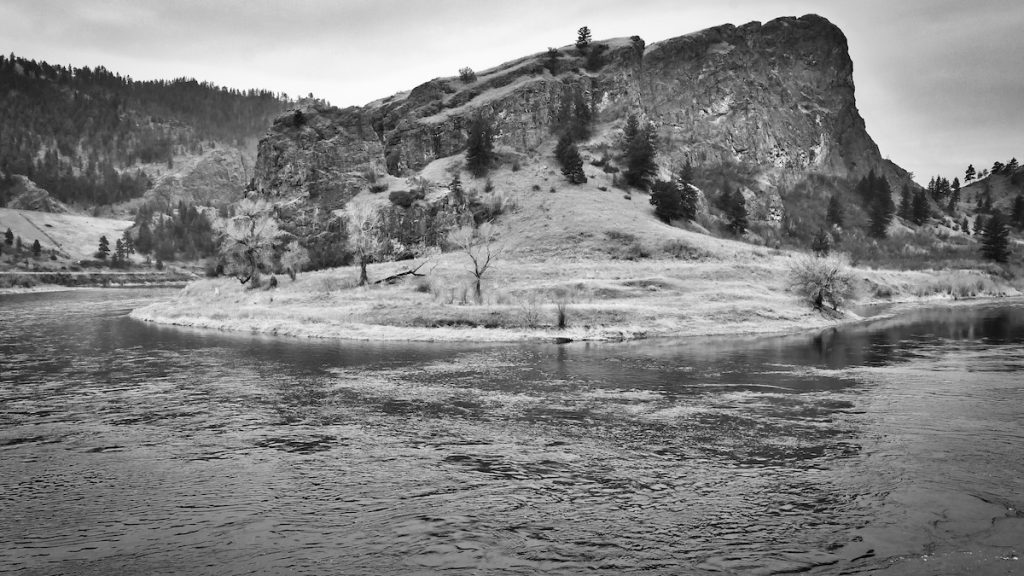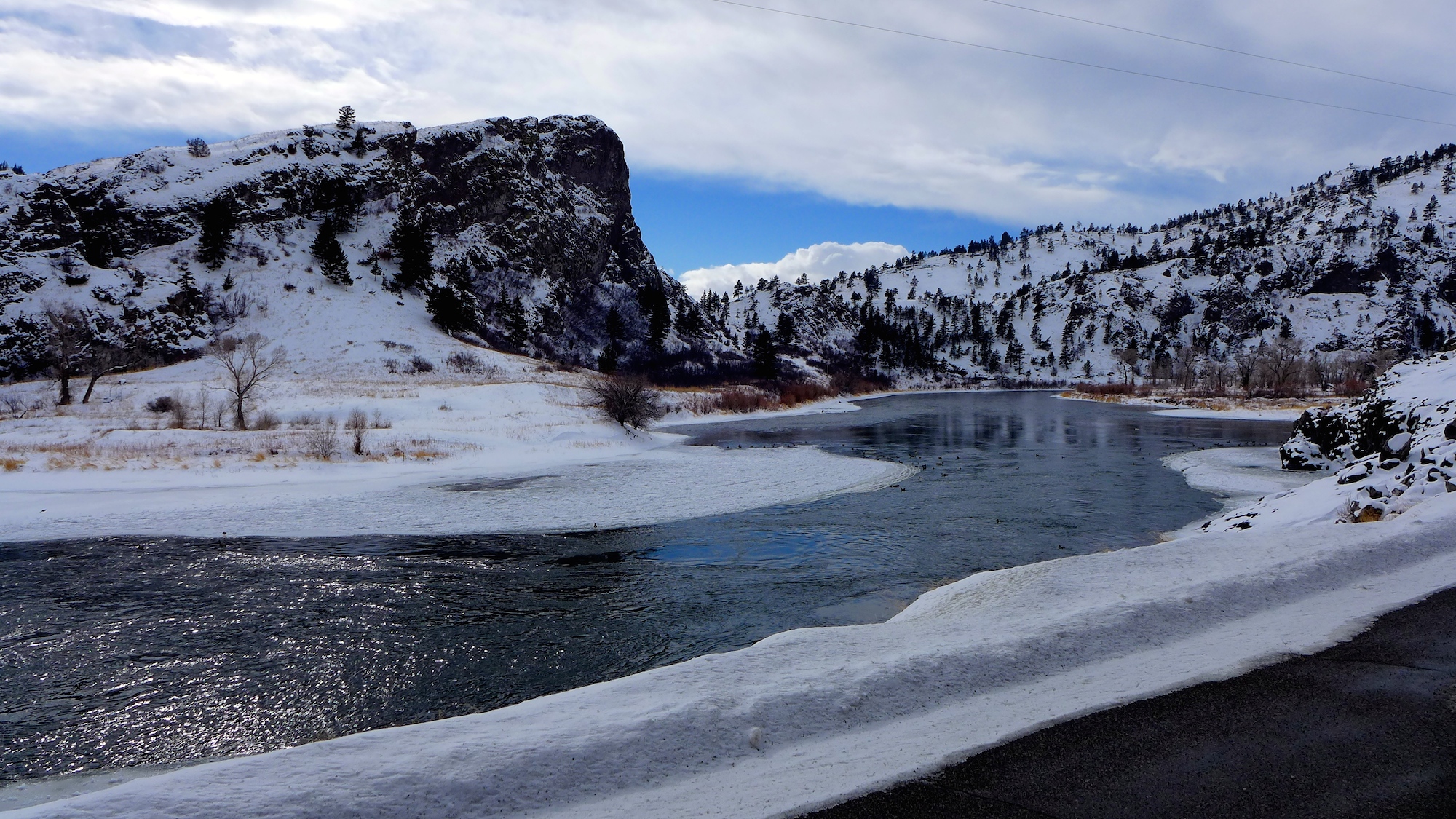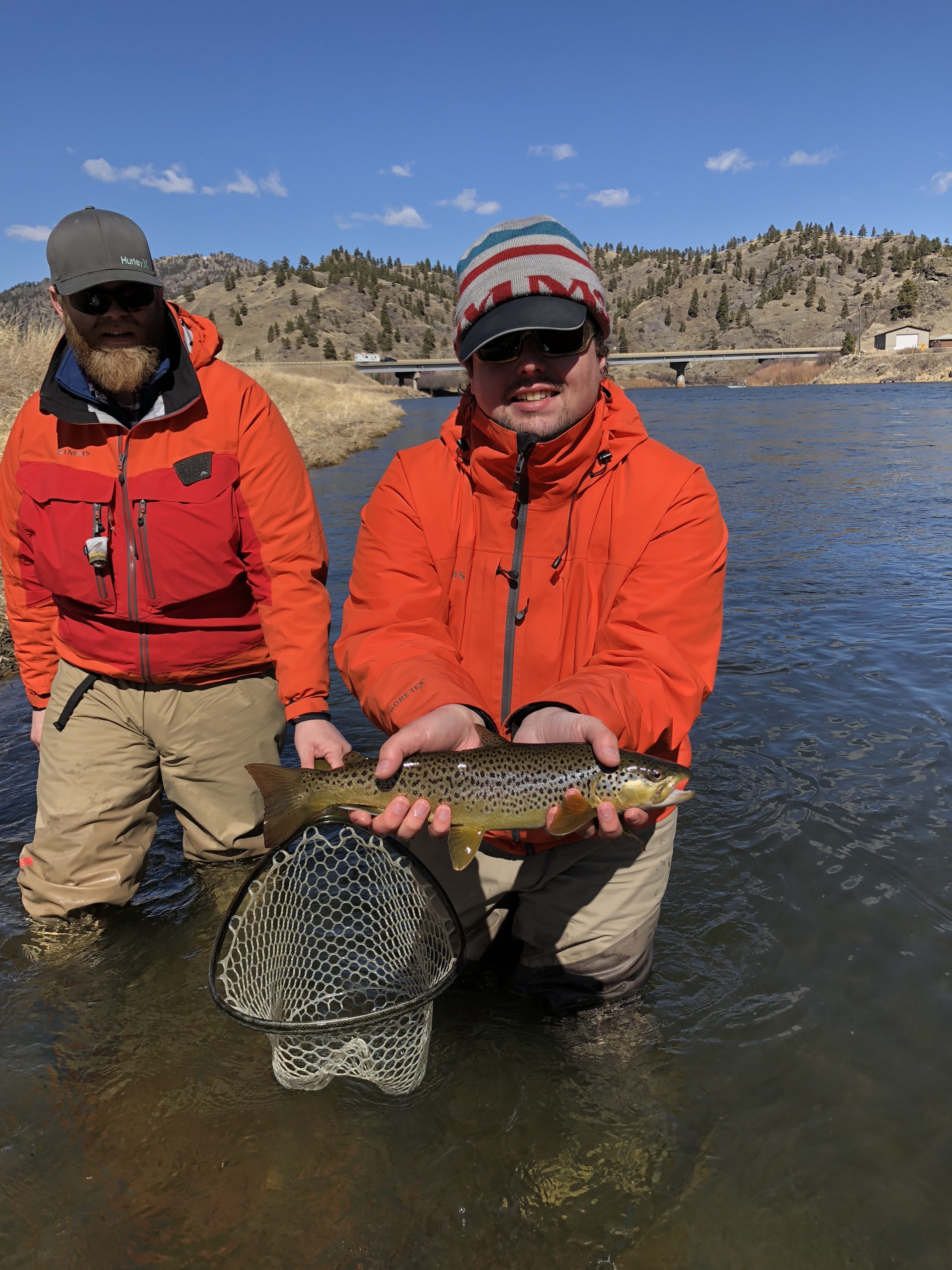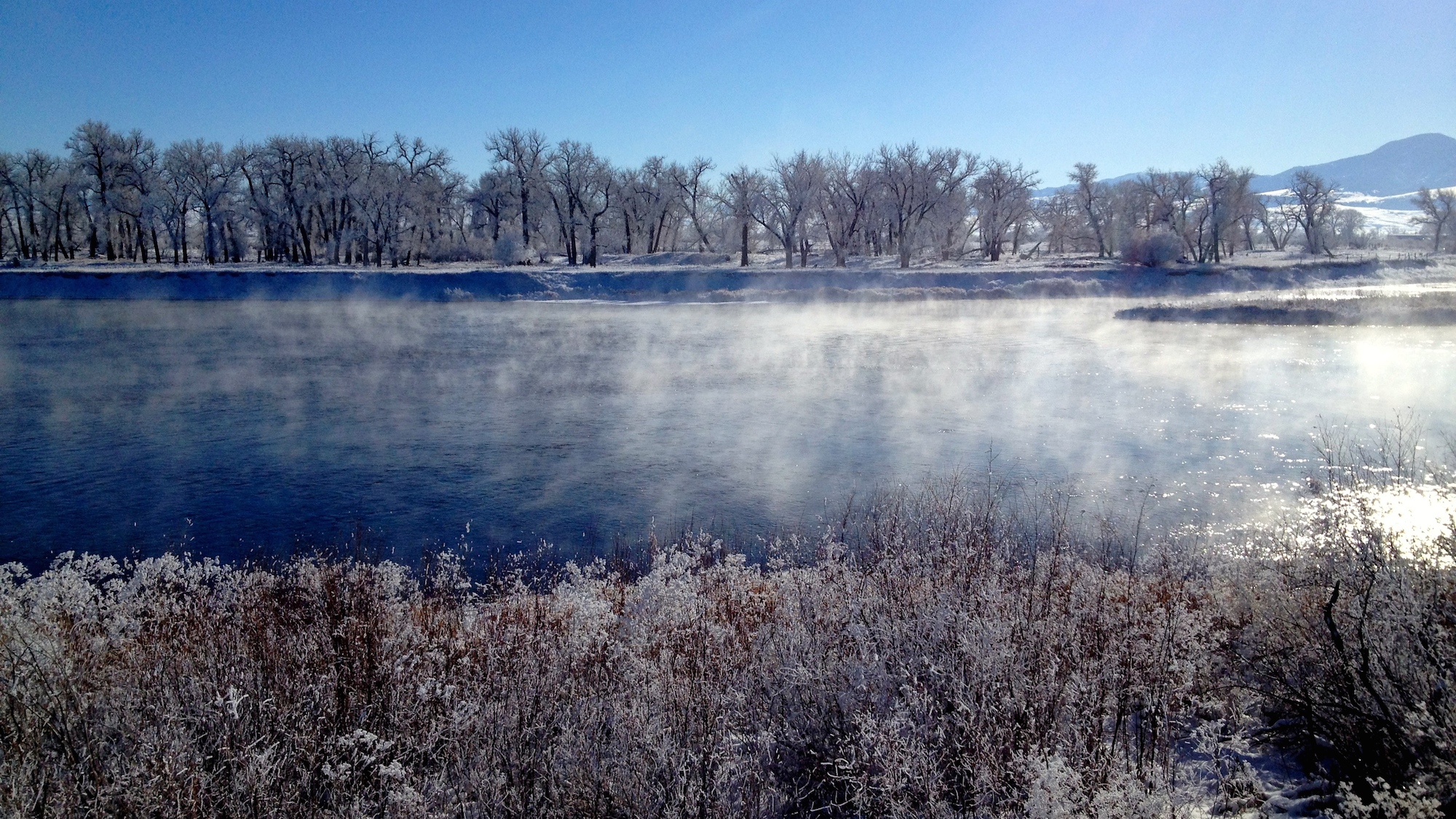A busy weekend means that we get to hear a lot of fishing reports. And we can tell you that for Friday and Saturday – and much of the last week – they’ve been all over the place. Streamer guys are pretty much getting their fish. It’s probably even better out of the boat than on the swing, though it depends on where you are.
Nymphing on the other hand, has been wildly unpredictable. But we’ve had guide trips out for the last 4 days, and they were getting them. So were local anglers that fish regularly in the winter, and know the river. But there were others who had some very tough fishing. Here’s three things we would recommend that you do to improve your odds:
1. FISH SLOW
Now, we’re telling everyone this. At least everyone who comes in the shop and asks. Some are following our instructions, while others are not, though we don’t think that’s intentional. When we mean fish the slow water we mean it. Boring slow. Dead slow. Maybe even stopped. Our guess is that many of the anglers having tough nymphing are ‘outside’ of the line. They’re probably in a touch faster water than they should be.
We can actually see many anglers in the wrong water from the road when we’re doing shuttles.
Also, make sure you’re using split-shot. You need it to get that right-angle presentation, and keep things tight between your bobber and flies. If it’s not tight, you probably won’t see the take.
And speaking of ‘seeing’ the take, it will be very subtle – almost imperceptible – in that super slow water. Hit… everything.
below – Ben McNinch stressing the slow water tactics necessary at this time of year.

2. FISH LOW
Normally we aren’t recommending that anglers head below the Dearborn this time of year. But with the balmy, warm weather we’re experiencing, you should consider it.
The Canyon, riparian zone and boat ramps are totally ice free (I probably just insured we’ll get a bunch of snow this week). This is rare in February. But if thats how Mother nature is going to roll, let’s play long.
We’ve been fishing the canyon with both streamers and nymphs, and it’s been very good. As good as I can remember it this time of year.
Streamers are pretty easy. Keep them in the slow stuff, and you should be using a sink tip of at least 3 inches per second (ips), but probably more like 5-7 ips. A big line like the Airflo Streamer Max works great, but so does an inexpensive VersiLeader from RIO.
The big advantage when nymphing down here is that you can really size up with your bugs. Yes, the typical winter stuff like Pink Lighting Bugs, Firebead Sow Bugs and Zebras will all work. But so will Crawdads, Pats Rubber Legs, big Worms and larger bead-head attractors.
You’ll get harder takes and more solid hook-ups with larger flies. Once you find a few, then you can size down and fish that spot harder, possibly even on foot as there are some nice steep drops in the Canyon. Fish congregators.
3. KEEP AFTER IT UNTIL DARK
If you stick with until dark – or close to it – you should be rewarded with some good action on any method, including possible dry fly fishing if the winds lays down. It’s the warmest time of the day if you’re a fish, and like any other time of year, when the sun goes off the water, the fish come out to play.
Starting too early, especially on a windy day, can have you cold and frustrated before the fishing really gets great.




